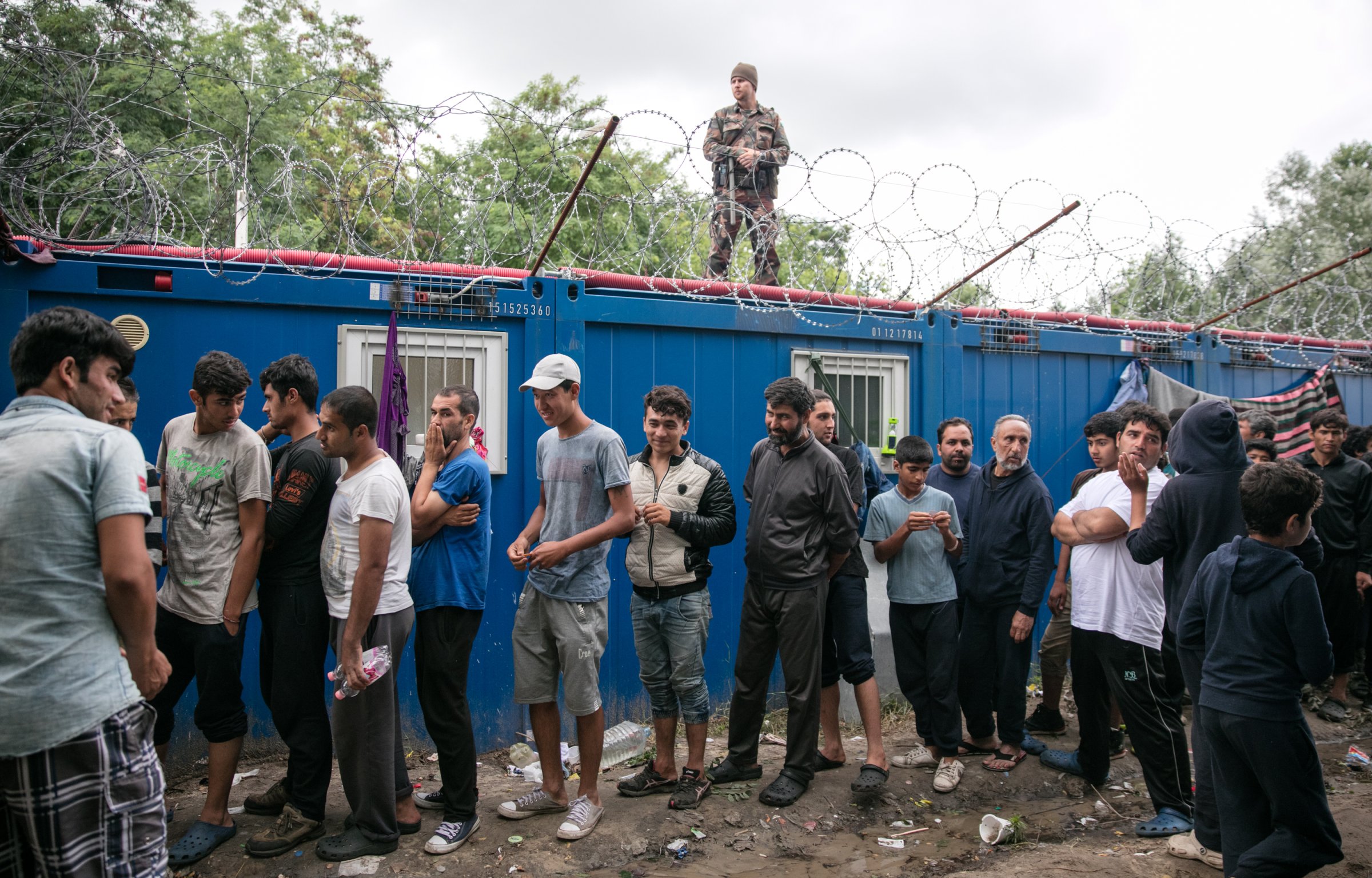
Hungary has created a Kafkaesque system of border fences, draconian laws, unlawful detentions and abuse to deter and push out refugees and asylum seekers who arrive in the country, according to a new report by Amnesty International.
“President [Viktor] Orbán has replaced the rule of law with the rule of fear” John Dalhuisen, Amnesty International’s Director for Europe, said in a statement. “His attempts to deliberately prevent refugees and migrants from reaching Hungary have been accompanied by an ever more disturbing pattern of attacks on them and the international safeguards designed to protect them.”
Amnesty published the report as Hungary heads for a referendum on Oct. 2 on whether the country should accept an E.U. quota system for resettling refugees. The government is trying to persuade voters to reject the proposition and the government has sponsored an anti-immigrant campaign, linking migrants to terrorism and crime.
Todor Gardos, the Amnesty’s Balkans/E.U. researcher and co-author of the report, tells TIME that from the moment a migrant attempts to enter Hungary, everything is done to prevent them from attaining asylum or refugee status there. On arrival in Hungary, migrants are restricted to a transit camps set up after Hungary shut its border with Serbia on Sept. 15, 2015. The camps consist of fenced-off metal containers that act as offices for immigration officers and police and accommodation for migrants.
In the camp, migrants are not allowed to leave their 160 square-foot containers or the adjacent footpath unless they want to return to Serbia. As the camps take only 30 people per day, around 600 migrants stay in makeshift camps in Serbia which have no showers or kitchens.
Once migrants are processed at the border, they are brought to open or closed accommodation centers around the country, where they they endure a long asylum or refugee application process which Amnesty says is “designed to reject them.” Migrants told Amnesty that the centers have no activities, childcare facilities or translators to help with asylum or refugee applications. Some said they were beaten and threatened with violence by security guards and police. Amnesty also said some people at the centrer were self-harming, threatening suicide and going on hunger strike to protest their detention.
Zoltan Kovacs, Orbán’s spokesman, says Amnesty’s claims of police abuse are “sheer lies,” DW reports. He says Hungary investigated the reports and found them to be false, adding that reception centers and integration assistance had to be closed “because migrants very consciously misuse the existing system.”
Hungary has also created a series of laws criminalizing migrants and refugees. Their new ‘push back law,’ passed in July, enables police to apprehend and push back any foreign national who entered the country irregularly and were within 5 miles of the state border. Migrants told Amnesty they were kicked, chased by dogs or beaten by authorities during ‘push backs.’
In response to criticism of the new ‘push back’ measures in July, Hungary said those caught near the border can file their claims at the transit camps on the border. “Today, the protection of Hungary and of Europe is the government’s task,” Janos Lazar, chief of staff to Hungarian Prime Minister Viktor Orban said to AP, “For Hungary, security is the most important question. Stopping illegal immigration is a key issue.”
“European leaders need to get organized not ‘Orbánized’” Amnesty’s Dalhuisen says. “Their failure to robustly challenge Hungary’s breaches of E.U. law will strengthen the hand of xenophobes and populists and could result in a serious structural threat to the rule of law and respect for human rights.”
More Must-Reads from TIME
- Donald Trump Is TIME's 2024 Person of the Year
- Why We Chose Trump as Person of the Year
- Is Intermittent Fasting Good or Bad for You?
- The 100 Must-Read Books of 2024
- The 20 Best Christmas TV Episodes
- Column: If Optimism Feels Ridiculous Now, Try Hope
- The Future of Climate Action Is Trade Policy
- Merle Bombardieri Is Helping People Make the Baby Decision
Contact us at letters@time.com